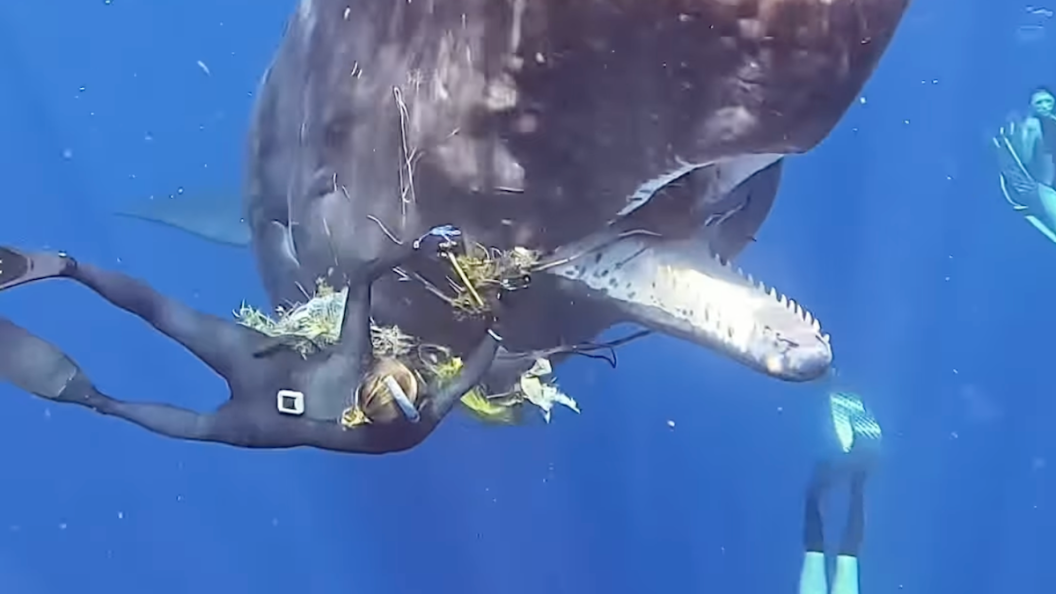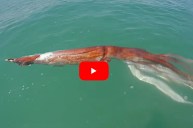A snorkeler who swam next to a Sperm whale to remove debris from its mouth captured the surreal experience on tape. The video paired with serene music shows a group of swimmers circling the whale. Then, one snorkeler grabs hold of the whale's lower jaw and starts removing what looks like seaweed from the corner of its mouth.
The video was shared by social media influencers Robby & Lorien and Lorien takes credit for removing what she called "organic debris and trash." In the caption, she explained that the area experienced a couple of big storms throughout the week, which kicked up a layer of plant debris and trash.
View this post on Instagram
As they swam in the pristine waters, others were swimming and photographing the "majestic lady" ahead of them, but when it was their turn, Lorien could see the material inside the whale's mouth and throat.
"After only seconds of observing her, I thought that's enough. I felt sick. I swam in front of the few people near her head ... and started to remove the debris," Lorien wrote, adding that she didn't know Robby was filming her.
"The part shown here in the video was the 'easy part' as I didn't really have to put my hand super close to her teeth where she could close her jaw on my hand. Though I didn't need to be, I was still nervous, but she was super relaxed seeming and allowed me to remove the first big pieces," she said.
She added that she surfaced to take a breath and when she returned, the whale "barely moved and let me reach in to remove the last of the trash." Lorien called the experience "very special, but also heartbreaking."
Although Lorien describes herself as helping a distressed whale, experts say you should not touch them. Costa Rica Dive & Surf, which organizes swimming adventures, explained on its website that swimming with whales and touching them can be dangerous. Besides putting yourself at risk by interacting with a wild animal, you could also spread germs to the giant mammal and even be the source of its distress.
While neither Lorien nor Robby shared their location — it looks tropical — U.S. law prohibits direct interaction with wild marine mammals (except for scientific purposes). Doing so could violate the Marine Mammal Protection Act.




